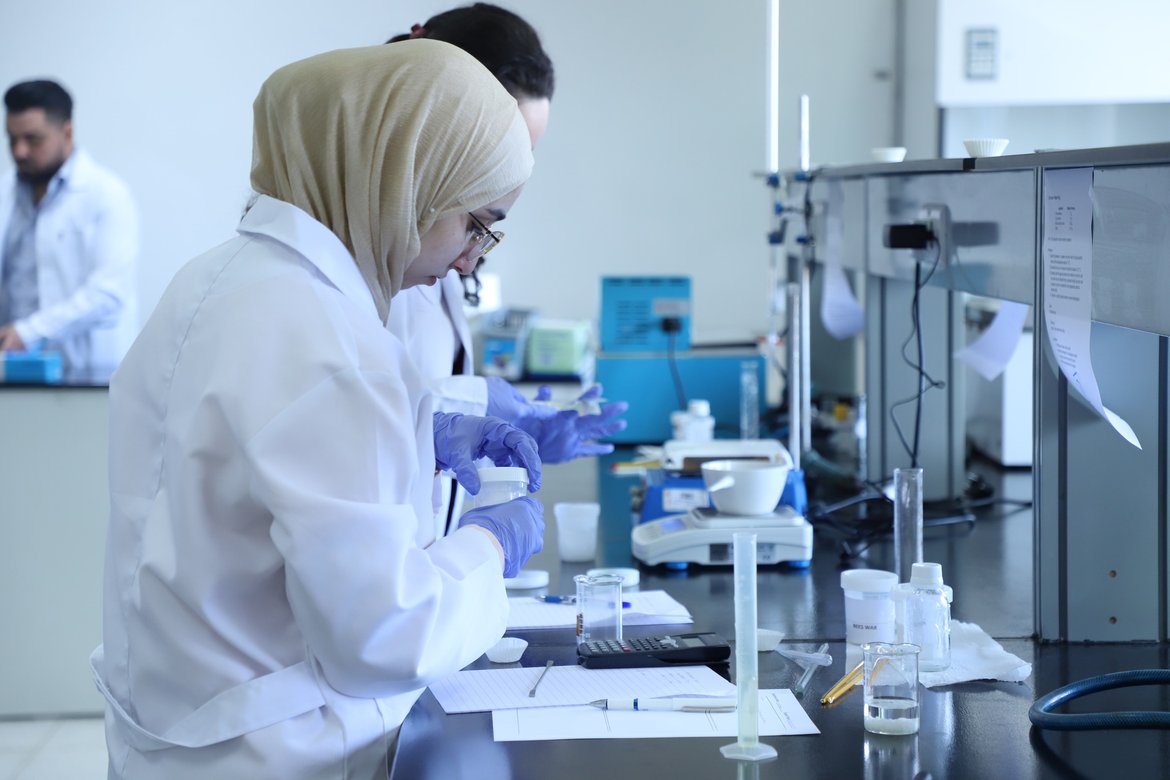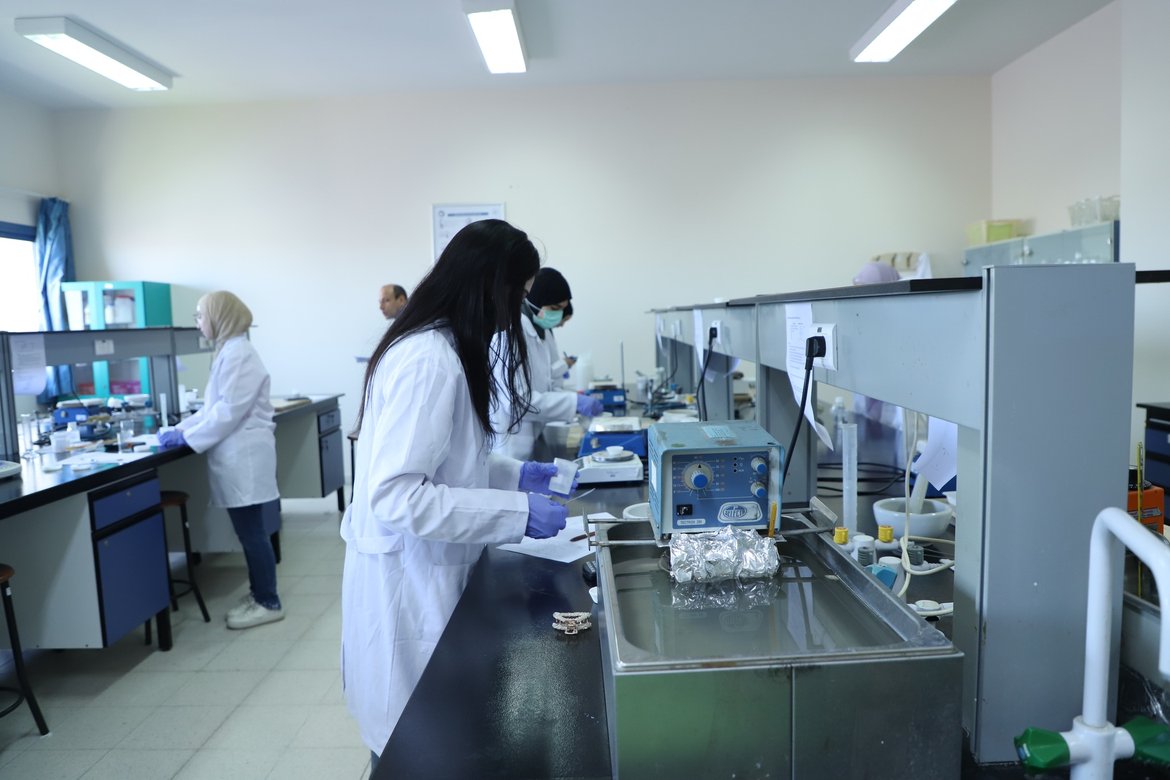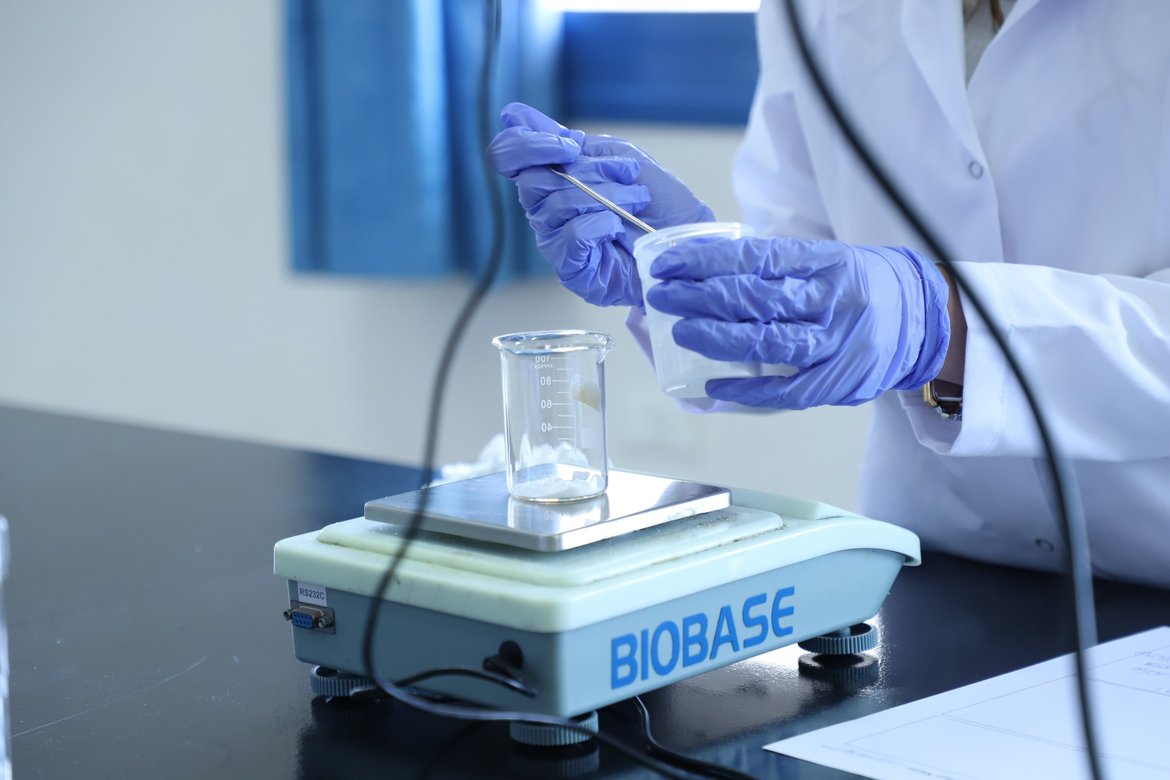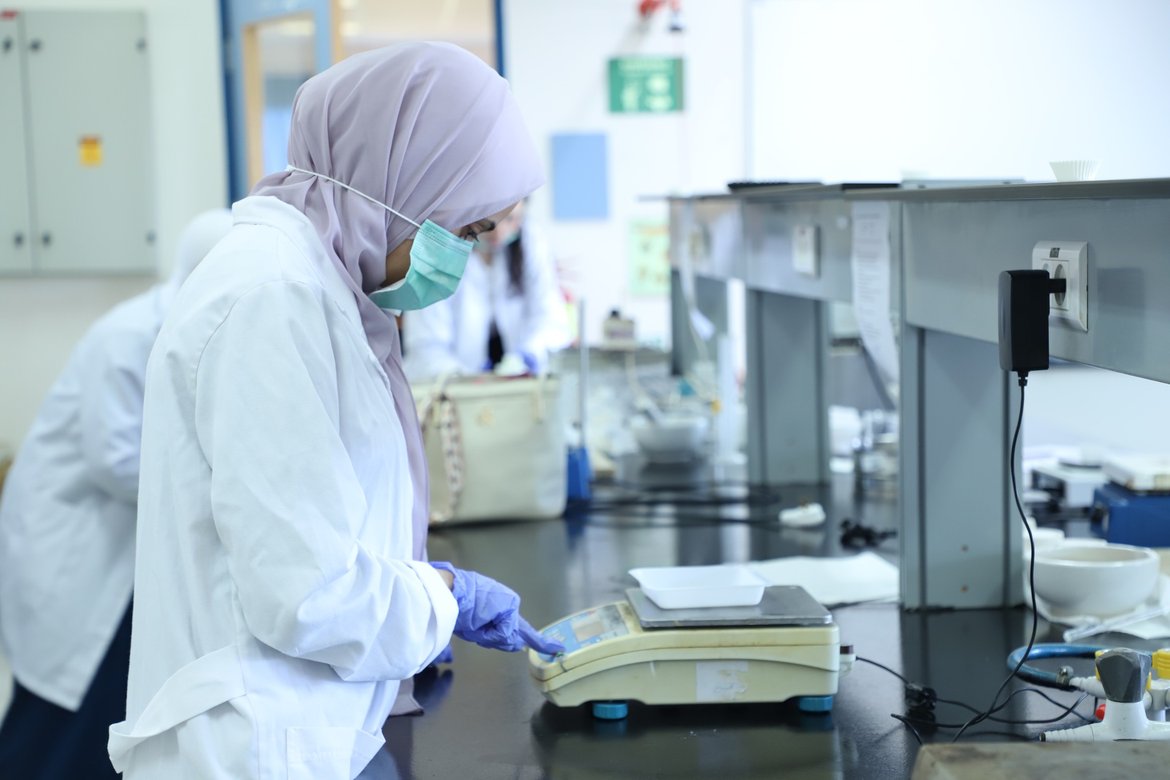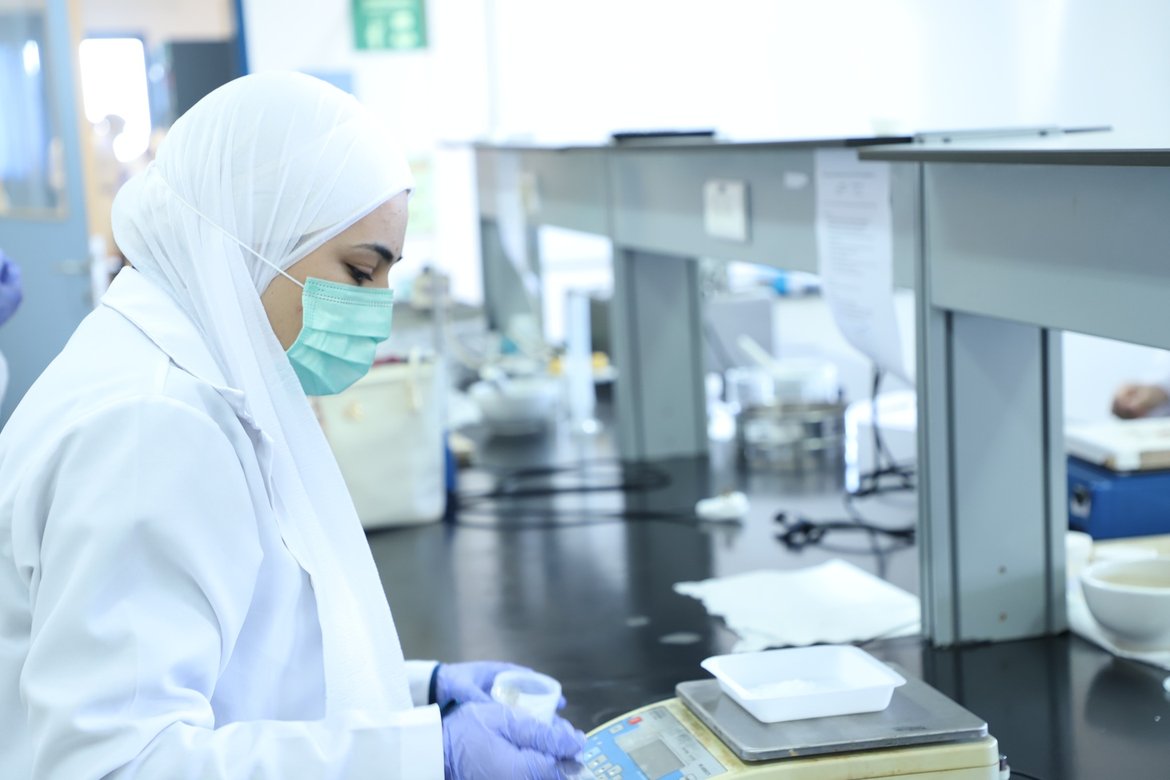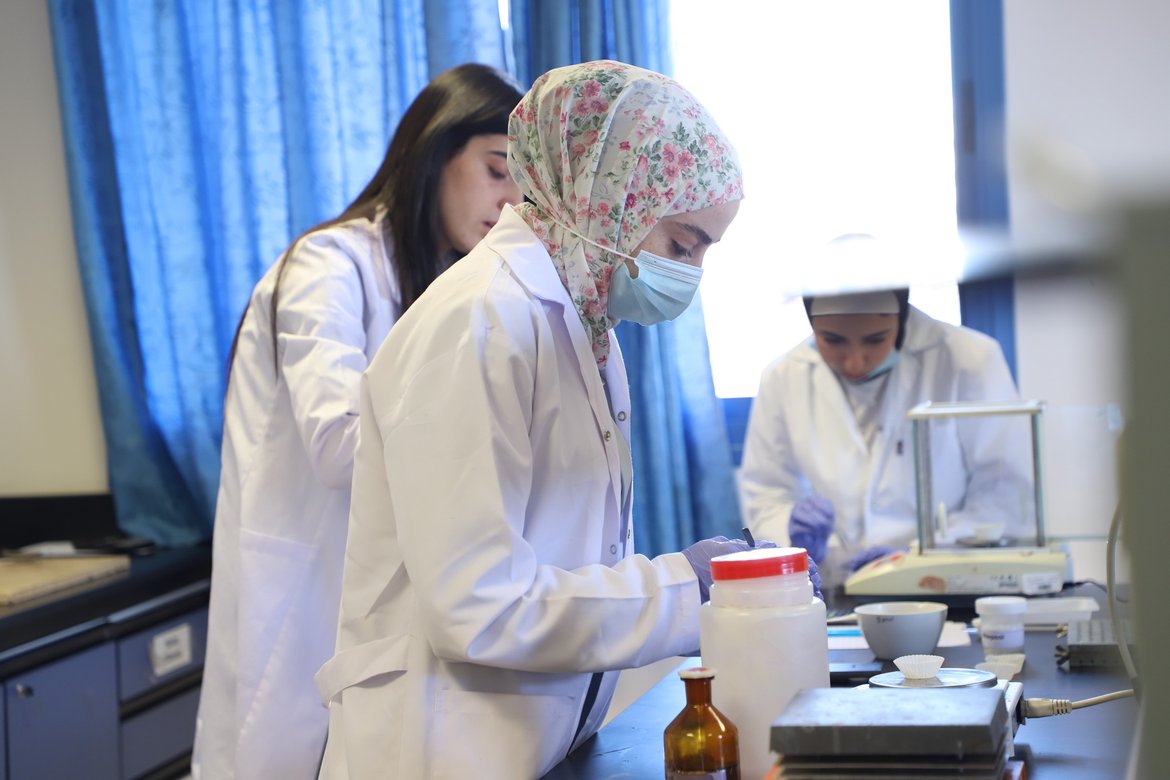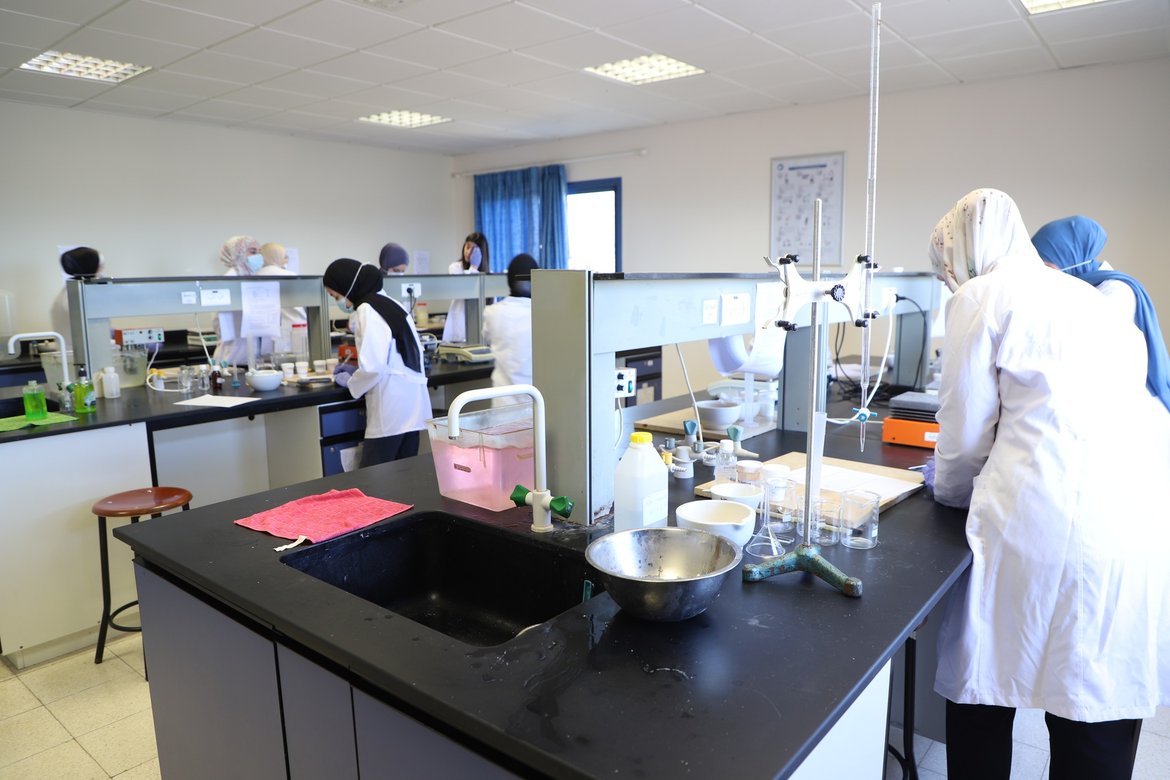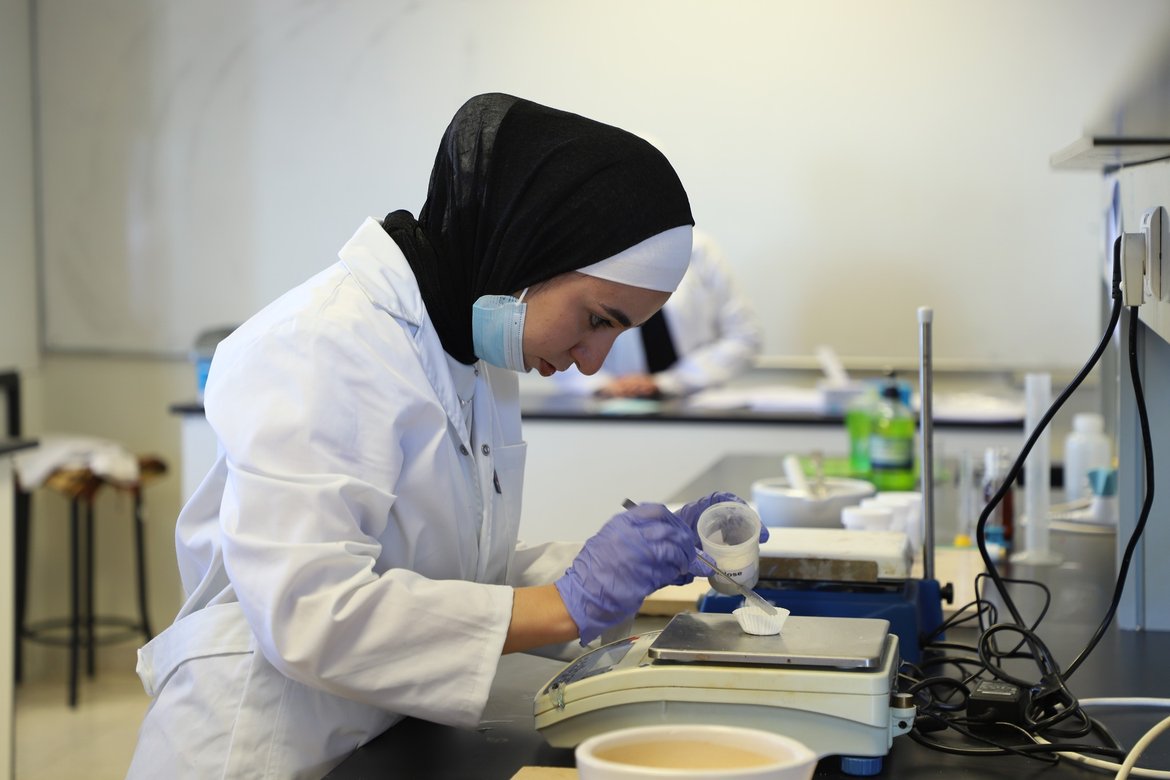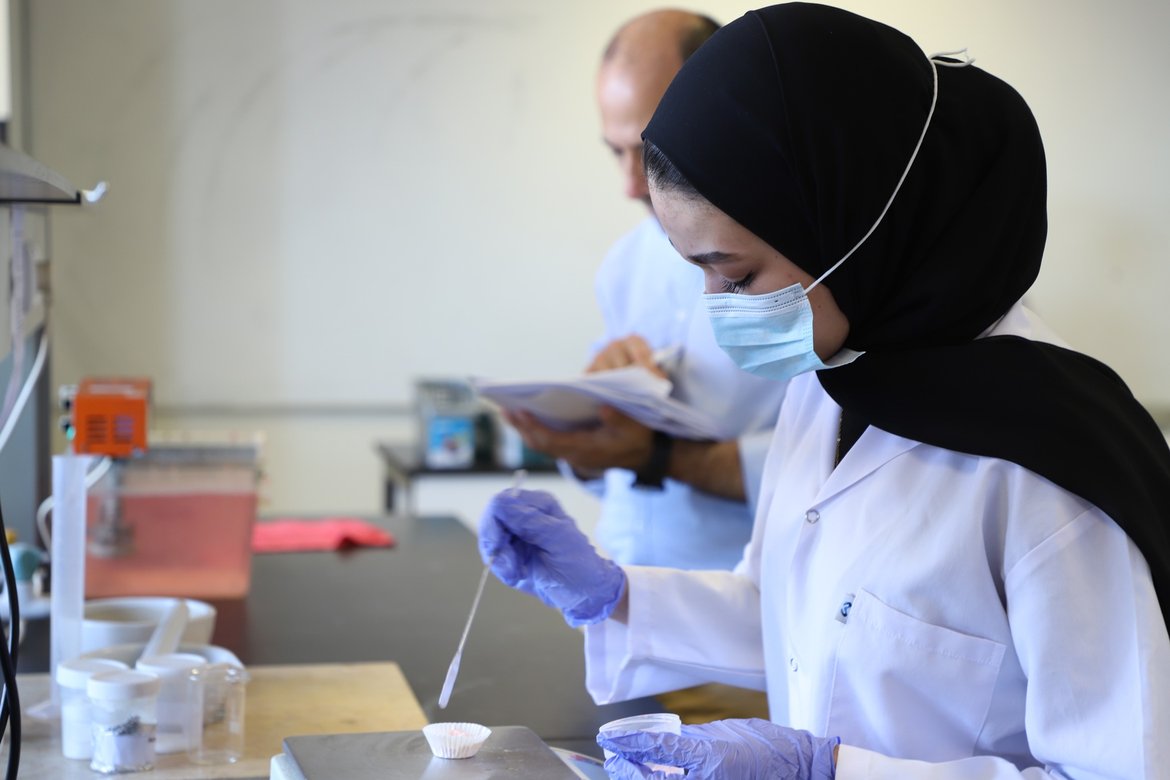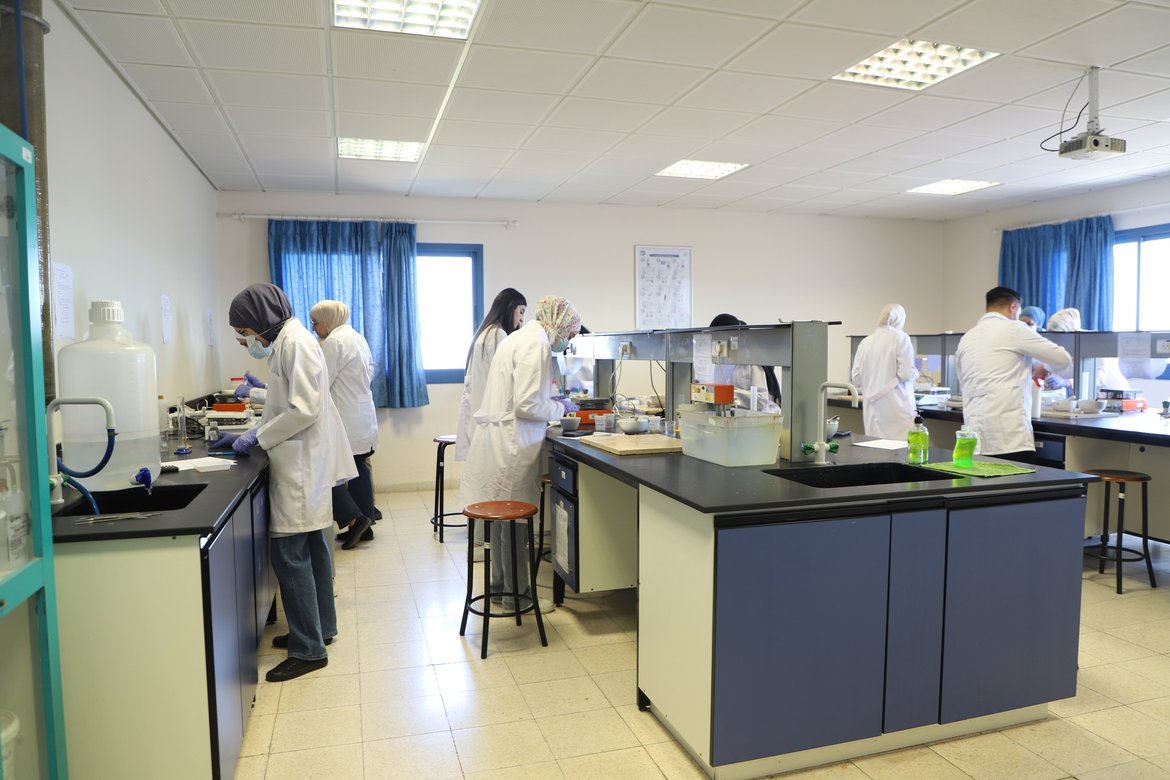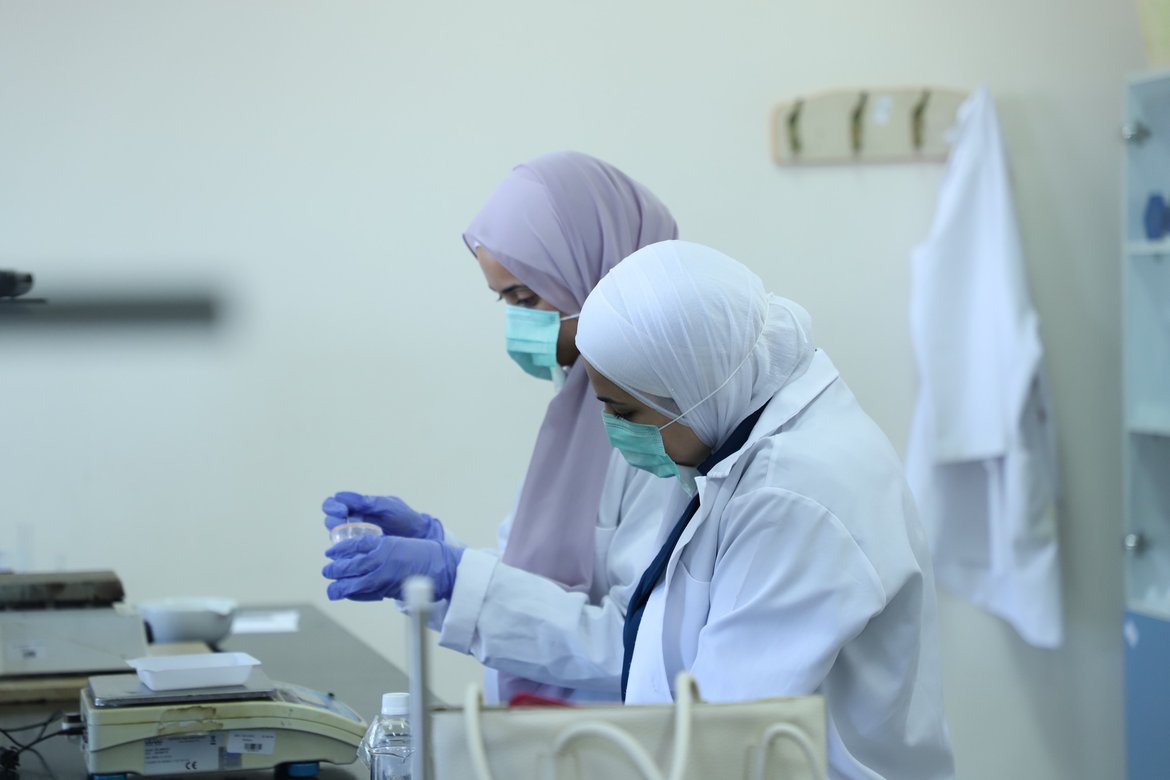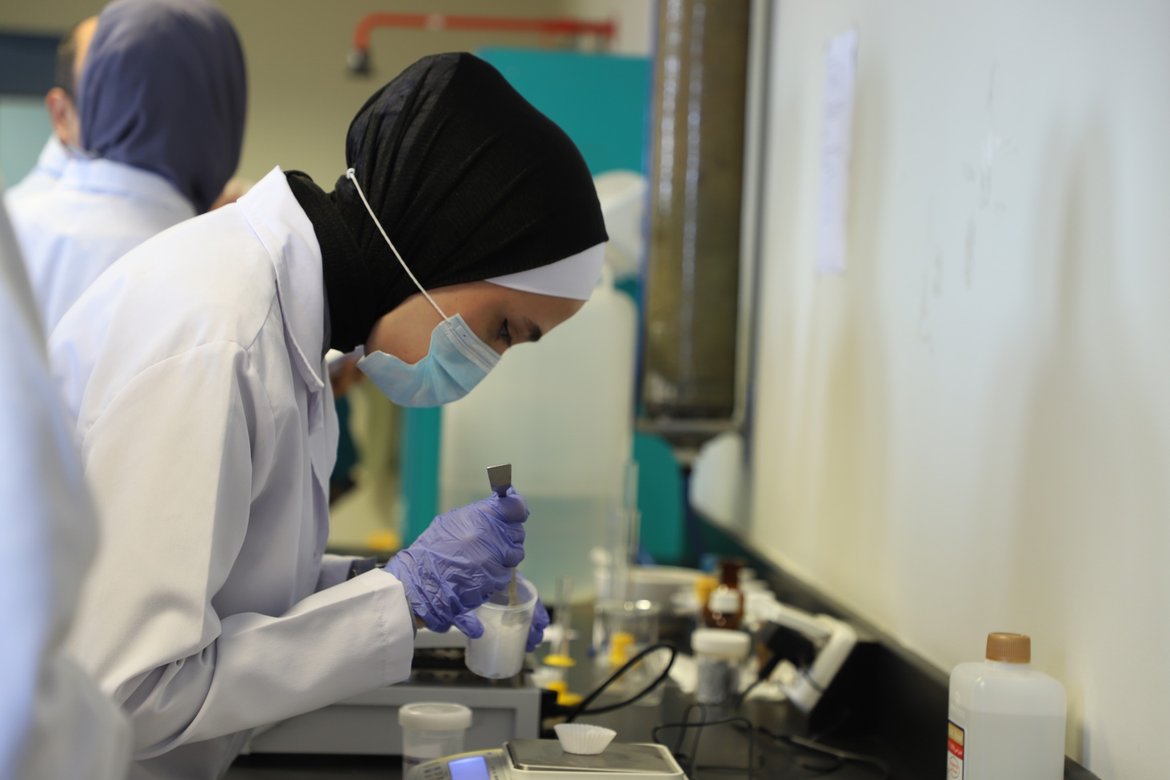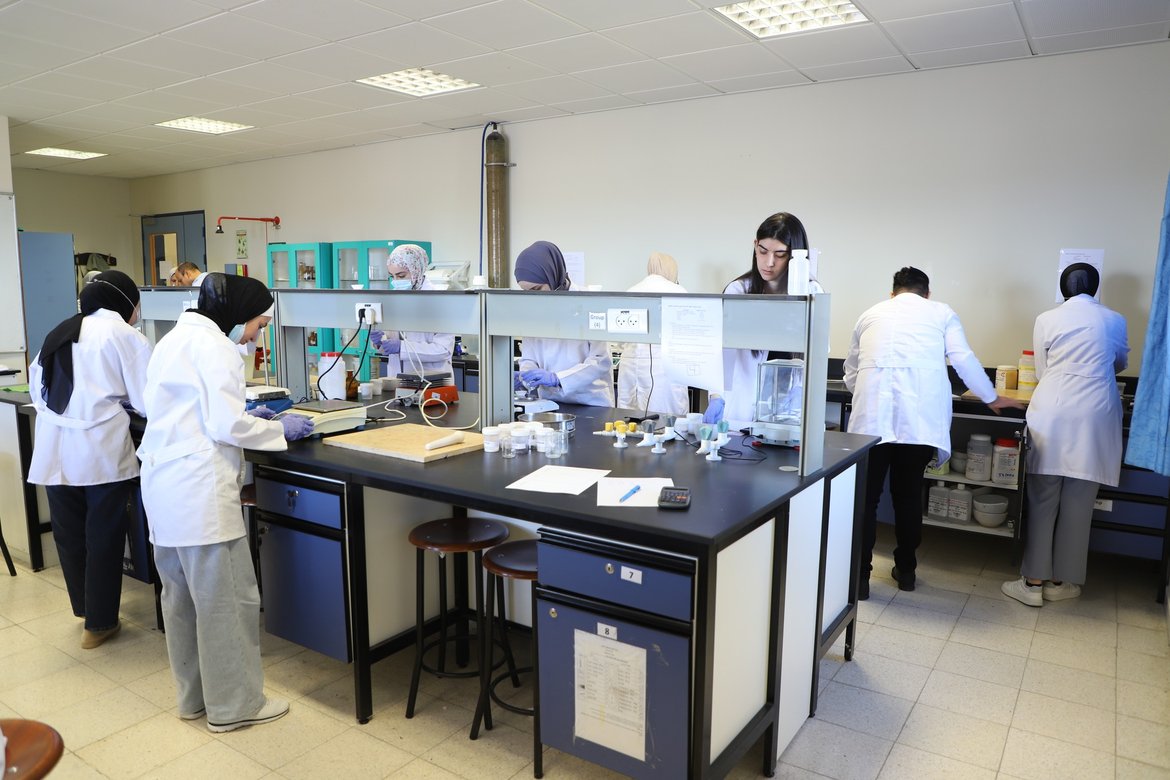Laboratories of the Faculty of Pharmacy
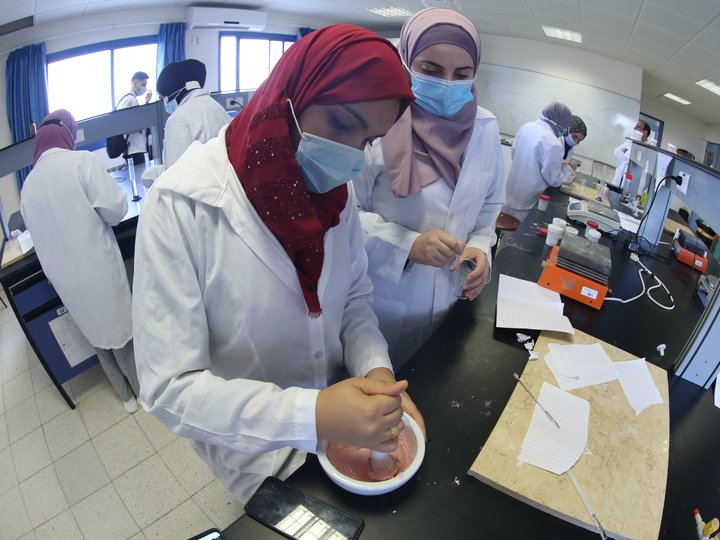
Students learn how to prepare various pharmaceutical formulations, including suspensions, emulsions, creams and ointments, suppositories, and capsule filling.
The lab is equipped with the following devices and tools:
- Compounding tools (mortar and pestles, ointment tiles, basins, and various glassware)
- Manual capsule filling machines
- Suppository molds
- Analytical and electronic balances
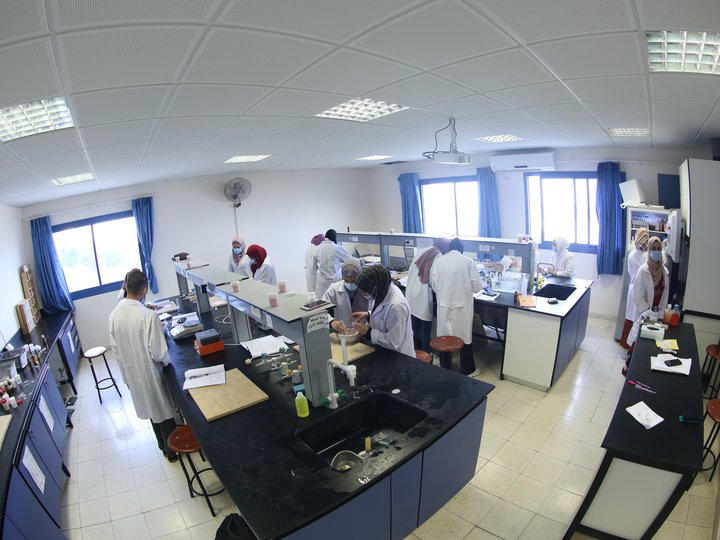
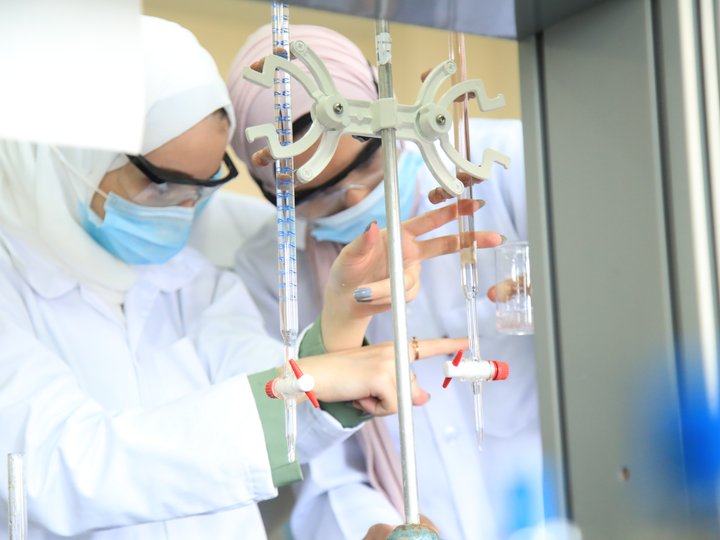
Students conduct experiments related to drug solubility, thermodynamics of diffusion, partition phenomena, adsorption, surface properties, and drug stability and degradation.
The laboratory is equipped with the following instruments:
- Spectrophotometer
- Viscometer
- Dissolution apparatus
- Disintegration apparatus
- pH meters
- Titration setup
- Water baths
- Hot plates
- Balances
- Separatory funnels


This laboratory aims to equip pharmacy students with the essential skills to identify medicinal plants and their active components commonly used in pharmacies and hospitals. These skills are especially valuable for students planning to work in the Ministry of Health and the pharmaceutical industry.
Students also gain practical experience in extracting chemical compounds from medicinal plants.
The laboratory is equipped with the following instruments:
- Microwave apparatus for extraction of essential oils
- Shaker
- Evaporator
- Freeze dryer
- pH meter

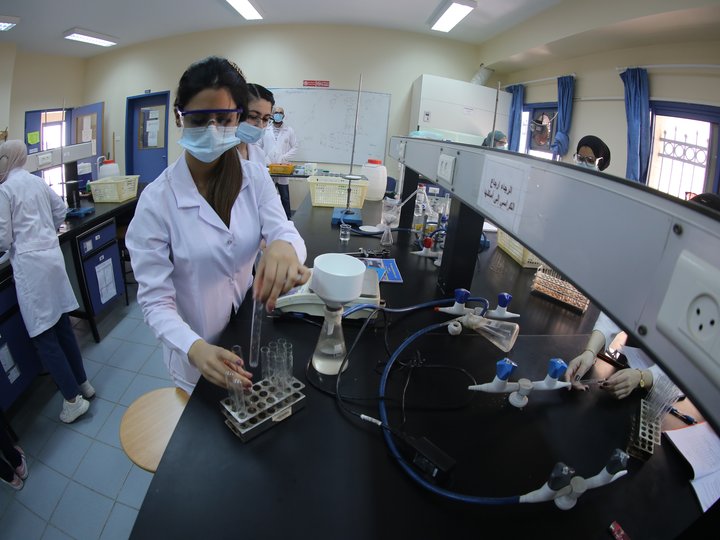
This practical course is designed to demonstrate and reinforce the theoretical principles of analytical chemistry. The course consists of 14 lab sessions, most of which involve the analysis of substances using various titration methods.
In the initial sessions, students are trained to correctly interpret laboratory measurements and handle them accurately. Several experiments are conducted to analyze pharmaceuticals in accordance with international pharmacopeias. For example, students determine the concentration of aluminum hydroxide and magnesium hydroxide in antacids and quantify iron in certain medications using redox titration methods.
The laboratory is equipped with the following instruments:
- Titration setups
- pH meters
- Analytical balances
- Water baths
- A variety of laboratory glassware

The Industrial Pharmacy Laboratory aims to provide students with a clear understanding of various pharmaceutical dosage forms and the techniques used in their preparation. It bridges academic knowledge with practical applications in drug manufacturing and enhances students’ hands-on experience in settings that closely resemble actual pharmaceutical industry practices.
This lab allows students to train extensively in the manufacturing procedures of specific dosage forms, from the dispensing of raw materials to the final production stage. Each step includes all necessary requirements to meet processing standards. In addition, students gain practical experience in conducting various quality control tests, such as:
- Wet granulation testing
- Disintegration testing
- Hardness testing
- Friability testing
- Weight variation testing
- Practical Hair and Nail Care Products Laboratory: This laboratory provides students with fundamental knowledge and hands-on skills in formulating and developing various hair and nail care products. Topics include the creation of products such as shampoos, conditioners, styling products, hair dyes, curling and straightening solutions, as well as grooming essentials like shaving and hair removal products, and hair loss treatments. The course also covers the formulation of a variety of nail care items including cuticle removers, softeners, nail whiteners, nail polishes, and polish removers.
- Skin Care and Cleansing Laboratory: This clinical lab is designed to provide students with practical training in identifying different skin types. Students acquire the necessary skills to differentiate between oily, combination, inflamed, and systemically affected skin. They also learn to offer appropriate patient advice based on individual skin assessments. The course further explores the clinical connections between facial treatments and chronic dermatological conditions.
- Skin Care Products Laboratory – Part 1: This lab equips students with the knowledge and skills to formulate a variety of cosmetic skin care products. Students will develop protective creams, exfoliants, facial cleansers, cleansing creams, moisturizers, day creams, night creams, and hand and body creams. Through practical experimentation, students gain a comprehensive understanding of formulation processes involved in creating these skin care products.
- Practical Skin Care Products Laboratory – Part 2: Building on the foundational work from the first part, this advanced laboratory enhances students' knowledge and skills in formulating specialized preparations. Topics include the advanced processes of creating sunscreens, tanning products, exfoliants, as well as deodorants and antiperspirants. Students deepen their theoretical and practical understanding of formulating these specialized cosmetic products.
- Cosmetic Raw Materials Laboratory: In this course, students explore the basic principles behind the production of both natural and synthetic active cosmetic ingredients, in addition to the essential raw materials used in cosmetic formulation. The curriculum includes the preparation of core ingredients such as solvents, waxes, whitening agents, and sunlight absorbers and reflectors. Students gain a thorough understanding of manufacturing processes essential for producing these vital components in cosmetic preparations.
- Practical Perfume and Essential Oils Products Laboratory: This course imparts foundational knowledge and hands-on skills in the art of extracting essential oils using various methods. Students also learn to produce a range of fragrant products including colognes, spray colognes, and aftershaves. Additionally, the course includes the creation of inhalation products containing essential oils and the formulation of air fresheners. With a balanced approach to theoretical instruction and practical application, students develop a robust skill set in extracting and preparing a wide variety of aromatic products.

